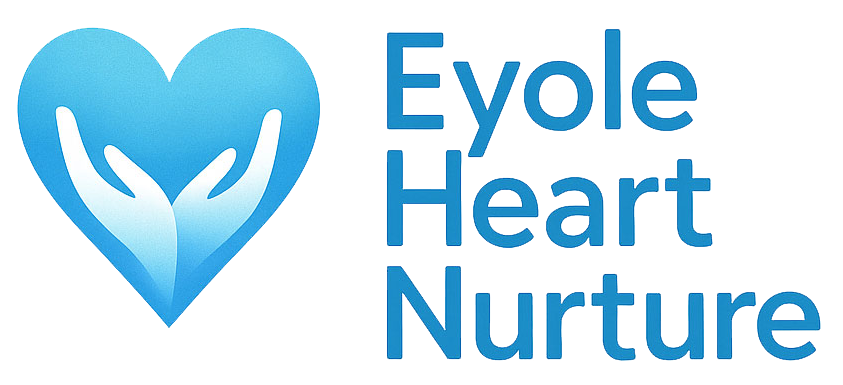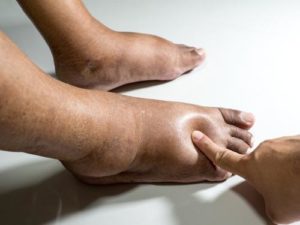Anna noticed her feet swelling after long walks, but she dismissed it as tiredness. Later, she felt breathless, exhausted, and lightheaded, signs she wished she had known were warnings from her heart.
How do you know if swollen feet are related to your heart? This question is often puzzling, as swollen feet (or edema) can arise from many causes: gravity, medications, pregnancy, or high salt intake. But when swelling is caused by your heart struggling to pump blood effectively, it means your body is sending you a serious message.
Swollen Feet: What Your Body Might Be Trying to Say
When the heart’s ability to pump efficiently weakens, a condition doctors call heart failure, fluids begin to accumulate in the lowest parts of the body, causing swelling in the feet, ankles, and legs. This happens because blood pools in these areas, and the kidneys respond by holding onto sodium and water, worsening the swelling.
Anna’s story echoes what many go through silently, unaware of the signs. The challenge is that detecting heart-related swelling isn’t always easy without professional help. However, certain signs accompanying swollen feet strongly suggest that your heart might be involved:
- Breathlessness, even when resting or doing light activity
- Persistent fatigue that affects daily life
- Difficulty maintaining exercise routines because of exhaustion
- Feeling lightheaded or dizzy
- Episodes of fainting
These symptoms, together with swelling, can signal that your heart is under strain. The American Heart Association highlights the importance of recognizing these early signs to seek timely care.
When Should Swollen Feet Worry You?
Swelling that won’t reduce with rest, comes with other heart symptoms, or occurs suddenly should never be ignored. It’s particularly concerning if you have a history of heart or lung disease. The kidneys, responsible for fluid balance, may also contribute when they respond to poor circulation.
Managing Swollen Feet: Practical Steps and Spiritual Encouragement
For many, managing swelling involves simple lifestyle changes, such as reducing salt intake, staying active within personal limits, wearing compression socks, and managing stress. Spiritually, we find comfort in scriptures like Isaiah 40:31, reminding us to “renew our strength” even in times of weakness.
Next Steps
Your heart deserves compassionate care and attention, not just medically, but spiritually. At Eyole Heart Nurture, we invite you to take our free heart test to begin your journey towards holistic heart wellness. Your body speaks; may you listen with both heart and faith.
Frequently Asked Questions
1. How do you know if swollen feet are heart-related?
Swollen feet can have many causes, but if the swelling comes with symptoms like breathlessness, chronic fatigue, difficulty exercising, lightheadedness, or fainting, it may point to heart-related issues such as heart failure. A cardiologist can diagnose if the heart is the cause through clinical examination and tests, according to the American Heart Association.
2. What is the cause of swollen feet?
Swollen feet, or edema, can be caused by heart failure, kidney disease, venous insufficiency, medications, injury, or prolonged immobility. Fluid accumulates in tissues either due to poor circulation, organ dysfunction, or external pressure. As per MedlinePlus
3. What are three early warning signs your heart is failing?
Early warning signs of heart failure include shortness of breath, persistent fatigue or weakness, and swelling in the feet or ankles. These symptoms suggest the heart is not pumping effectively and require medical assessment. As per the National Heart, Lung, and Blood Institute (NHLBI)
4. When to worry about swollen feet?
Swollen feet warrant medical attention if the swelling is sudden, severe, persistent, or accompanied by chest pain, breathlessness, or a history of heart or kidney disease. Prompt evaluation can prevent complications, as per the Mayo Clinic.
5. What organ makes your feet swell?
The heart, kidneys, and liver can contribute to foot swelling by failing to regulate fluid balance properly. Heart failure leads to blood pooling, kidney dysfunction causes fluid retention, and liver disease affects protein levels, all causing edema. As per the National Kidney Foundation
7. What is the fastest way to reduce swelling in the feet?
The fastest ways to reduce foot swelling include elevating the feet above heart level, wearing compression stockings, reducing salt intake, and moving regularly to improve circulation. If swelling persists, consult a healthcare professional, as per the Cleveland Clinic.





